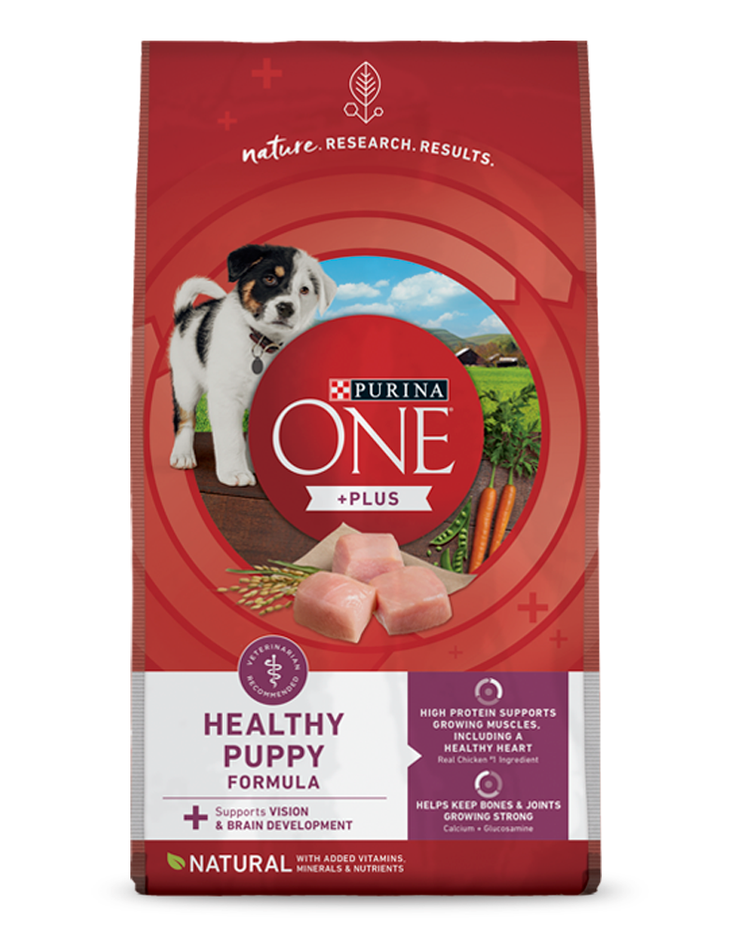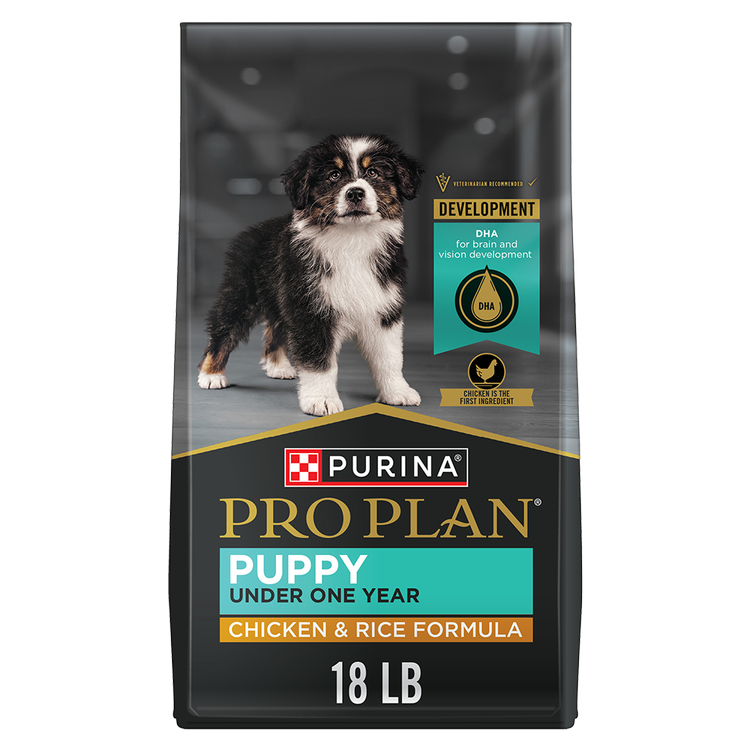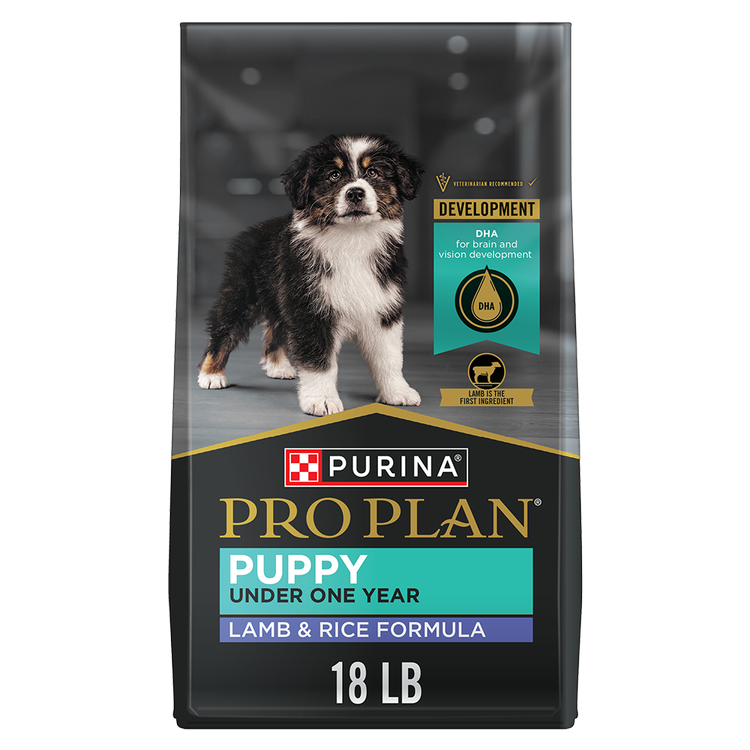Your Puppy’s Diet & Nutritional Needs


Puppies need puppy food until they reach maturity. For many dog breeds, this happens around their first birthday.
For larger breeds, they may not reach maturity until between 18 months and 2 years of age. Once puppies wean off their mothers’ milk around eight weeks of age, they transition to puppy food.
Proper puppy nutrition is essential to help support their growth and development at a steady rate. Learn more about the nutrients puppies need below.
Puppy Nutrition
Puppy food is specially formulated to meet the needs of growing pups. It has more calories than adult dog food and proper levels of essential nutrients, including vitamins and minerals puppies need to develop healthy immune systems, strong bones and more.
Nutritional Requirements for Puppies
A complete and balanced puppy food provides puppies with essential nutrients, and these nutrients serve specific purposes when it comes to puppy growth and development.
- Protein: Puppies need more dietary protein and more essential amino acids than adult dogs to support their rapid growth and development. Some adult dog foods may have similar protein levels, but it’s important to note that they may not have the appropriate levels of other essential nutrients puppies need.
- Fat: High-energy puppies use fat as an energy source and need higher levels of essential fatty acids for rapid growth and development. Fat also ensures fat-soluble vitamins are properly absorbed by the body. Puppy foods often contain higher fat than adult dog foods.
- Calcium: As it does for humans, calcium helps puppies develop strong bones and teeth. Calcium requirements for large and giant breeds are different than those of toy, small and medium breeds. For this reason, it’s important to choose a puppy food formulated for your dog’s breed size.
- Carbohydrates: Carbohydrates are another energy source for puppies. Carbs get broken down before protein or fat. Carbs are also a good source of fiber, which helps support the digestive health.
- DHA: This omega-3 fatty acid supports brain and vision development in puppies. A puppy’s first source of DHA is his mother’s milk. Once weaned, they rely on their diet to supply this essential nutrient. It’s most often sourced from fish or fish oil.
Weight Gain in Puppies
A complete and balanced diet is essential for normal growth that results in an ideal body condition once a puppy reaches adulthood.
A high-fat diet or overfeeding could result in accelerated growth rates. Puppies who grow too fast have higher risks of obesity and skeletal deformities. It can even decrease their life expectancy.
To ensure proper weight gain throughout puppyhood, feed your puppy the right amount of food each day and adjust as he grows.
Most puppies need three to four meals a day after weaning, but you can decrease the frequency of meals over time.
With the right nutrients in appropriate proportions, your puppy’s food will support him as he grows from a playful puppy into a strong and happy adult.
Visit our Pet Expertise page for more tips on puppy and dog nutrition, training and more from our experts.

How Much Food Is Right for Your Pet?
Get a personalized feeding guide for your dog or cat from Purina’s nutrition experts.






